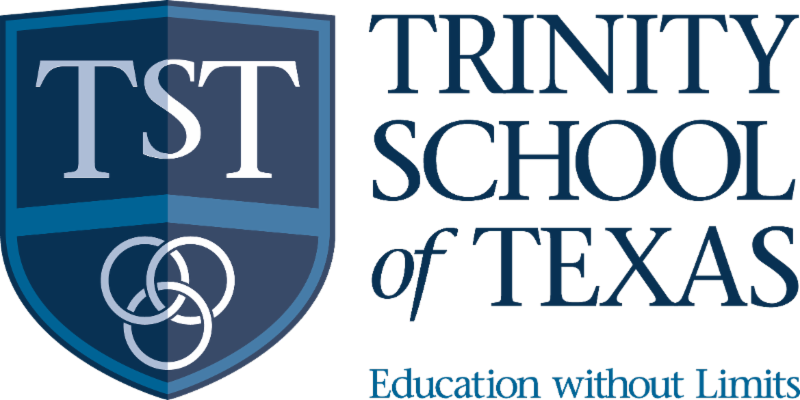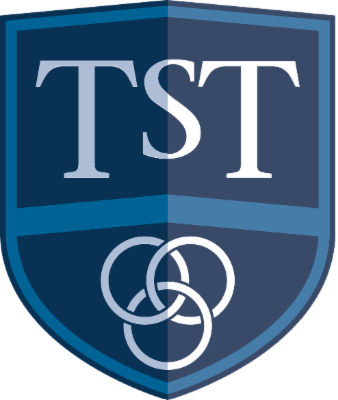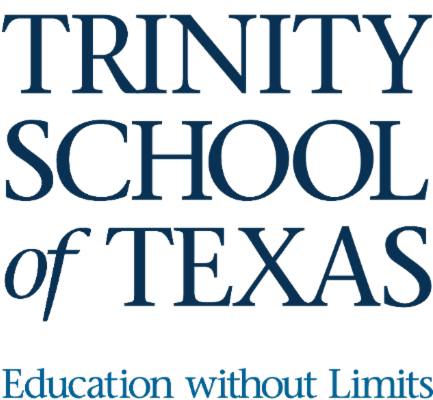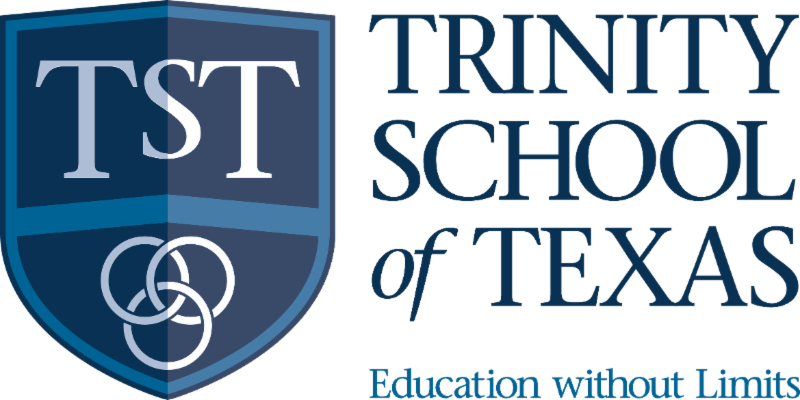At a time where we have so quickly moved from the freedom and luxury of having access to anything and everything our hearts desire to leaving our house only for essential errands, I am glad we have the Episcopal identity behind Trinity to cling to and carry us through these uncertain times. The essence of a TST learner embodies the mind, body, AND spirit. At the core of an Episcopalian education, the tenets of faith, reason, and tradition guide us. These three points are ever-present while on Trinity’s campus, and truth be told, have helped me, as an educator and parent, stay grounded, teaching and learning remotely. Keeping these three pillars in mind will hopefully help our Trinity community have something to lean on in our current state. I believe, together, we can and will come out of this better and stronger than we were before the quarantine.
FAITH
The Episcopalian belief is one that accepts people of all faiths – schools and churches welcome all. Trinity School of Texas is full of compassion and care with an emphasis on our academics, yet no matter what corner you turn, love and consideration for others is felt. At this time when we are home, multi-tasking and managing a lot with possible uneasiness and anxiety, we ask ourselves, how can we replicate these habits of grace that appear to come so naturally at school? Choosing joy and gratitude at the start of each day has helped me tremendously, along with looking at our day in moments (because I still have moments)! Finding small celebrations to acknowledge such as my daughter thanking her sister for bringing her a blanket when she was cold or when my husband wears a rainbow loom bracelet made by one of the girls or unloads the dishwasher just because – it’s noticing the little things and not taking them for granted!
Some simple ideas for families include having a gratitude list or prayer jar posted in a central location, so that anyone in the family can add a gratitude or request for prayer. The whole family can occasionally go through these. Another is to intentionally begin your day with a family prayer, or one at lunch time or mid-day if that works better. There are a lot of great devotional books available for all ages on Amazon. A great series with editions for adults, toddlers and preschoolers, as well as the elementary to teenage years is Jesus Calling / Jesus Today by Sarah Young. A few others include Doodle Devotions, Choose Kindness, The Simple Truth, #truth and Teen to Teen:365 Daily Devotionals (boy & girl editions). Journals for adults and children to record their thoughts and feelings can be very powerful and soothing. These can also be used as intentional prayer journals with pictures and words and can be great reflection tools after family prayer time.
Bishop Curry, of the Episcopal Church, believes in the power of consistent habits and that they go hand in hand with building habits of grace. He suggests, especially in this Easter Season, and during the COVID-19 isolation period, starting each day asking three questions.
1. How can I love God?
2. How can I love my neighbors?
3. How can I love myself?
Simple, yet powerful questions to help us build patterns of gratitude and joy in our lives and our children’s lives during this unusual time. Hopefully, we will all come out of this a little wiser and perhaps more compassionate than before.
REASON
The second ideology of an Episcopal identity is reason. Trinity School of Texas believes in the notion of being reasonable when approaching a variety of academic, social and emotional topics needed to meet the educational needs of students. Keeping everyone’s daily schedules on target to manage each individual’s personal wellness (sleep, exercise, diet, and self-care) may feel overwhelming at times. For myself, as long as my girls go to bed at night knowing they did their best (school work done for the day or not), feel loved and proud of their day’s accomplishments, that was a win. I find looking for humor and goodness throughout the day keeps me reasonable and afloat. We have to acknowledge self-care needs not only for our children, but also for our adult-self to keep a healthy balance amidst this craziness.
During the current pandemic, the American Academy of Pediatrics (AAP) is giving us permission to be more lax with screen time and to prioritize mental health first and foremost. With much of the remote classroom instruction taking place on the screen, the AAP states that it is acceptable for children to naturally increase their screen time. Some children will still want to turn to a favorite TV show, video game, or iPad app for downtime and a release.
Downtime is essential right now. It is important for our children to have the adults in their lives be good models of this. Intentional breaks can encourage both children and parents to take healthy breaks, for the mind, body, and spirit. First and foremost, attention is needed to take care of our bodies. Staying active with exercise, getting enough sleep and eating well balanced meals with nutritious snacks throughout the day is integral to feeling your best. Taking a break from watching, reading, and listening to the news on televisions, phones and computers throughout the day is needed, especially knowing right now children are constantly around, listening in and we can never be too sure of their reaction to things and the ramifications later on. There are so many healthy types of distractions that can be rewarding and it is best to set aside a little time each day for them. These could include reading a book or a magazine, listening to a podcast, gardening, building a puzzle, cooking, trying a new hobby like water coloring, or even watching a new show. These activities can be done with your children or solo. Other ideas include staying in touch with friends and family using a video chat app, playing virtual games together, or streaming shows or movies together. Exercising together is also a great option.
Differentiated learning is occurring across the multiple TST divisions, depending on our students’ needs. Deciding what a reasonable workload is for different grade levels is challenging. There is not a one size fits all solution. As a parent, you know your child best. It is okay to stray from the teacher’s lesson plans, let him or her read outside in the hammock with the dog, or complete the assigned work in any order. If they appear to need a break, send them outside to kick the soccer ball around or let them draw a picture at the kitchen table. Giving our students, our children, choices, is completely acceptable and the reasonable thing to do. Some children might not respond to the freedom of choices, but most will. Children do not always have the words to express worry, but it can still be there. Crankiness, trouble sleeping, clinginess, and increased levels of distracted behavior are all signs of possible anxiety. It is expected that they feel anxious at times. Their world has changed. They miss their teachers and friends. They worry about their summer plans. Choices and flexibility within their routine can help alleviate this. Learning at home will look different than learning at school, and it is OK. Teaching and learning during COVID-19 is not like regular school or even homeschool. We are a team- home and school – working together and trying new things while still doing what we do best – teaching your children.
Resilience and trust are built through time. Being reasonable is key to keeping the learning going and for your children to be experiencing successes through this never before seen Sixth Marking Period. Joy, grace and humor can carry you through with a simple and reasonable schedule to guide you through each day.
TRADITION
Anglican tradition is part of the Episcopal school identity. Trinity School of Texas is rooted in tradition and believes in motivating and challenging our students in an academically and spiritually stimulating environment to become creative problem solvers, and people dedicated to others. The idea of tradition resonates within Trinity and from the conception of the school, the core values remain constant and continue to represent the Trinity community. Family and tradition are two words that bring much comfort right now. There are many things we can do, no matter our children’s ages, to bring that feeling of nostalgia and togetherness into the home. We spend a lot of time together as a family, and always have. However, I have learned that the simple gesture of leaving my cell phone behind tells my children I am putting them first and our time together, right now-in the moment, is the most important. These are the outings and activities they treasure the most because I am fully engaged and giving 100%. They become my favorite times as well, and I have learned that it is better to have a good solid 30 minutes every day like this than a few hours with everyone on devices or phones. I specifically tell my daughters what I enjoyed most about our time together and that they are important to me. I thank them for spending time with me. I want them to know they matter in this crazy world.
We all have family traditions that we look forward to every year – baking and decorating cookies at Christmas, hiding and hunting Easter eggs, and attending church together. Now is the time to start new traditions – play board games after dinner, take a walk together after lunch, bake a cake. It will give your children a sense of normalcy, and it might even become their new favorite tradition.
We must not forget that we are all in this quarantine adventure together. We are with our Trinity community. May you be filled with peace, good health, joy and energy in the coming days and know that nothing is too big for you to tackle. Make some memories and have fun with your family. Who knows? You might even create a new family tradition or two.
Jessica Wilkinson
Head of Early Childhood and Lower School

 Login
Login







